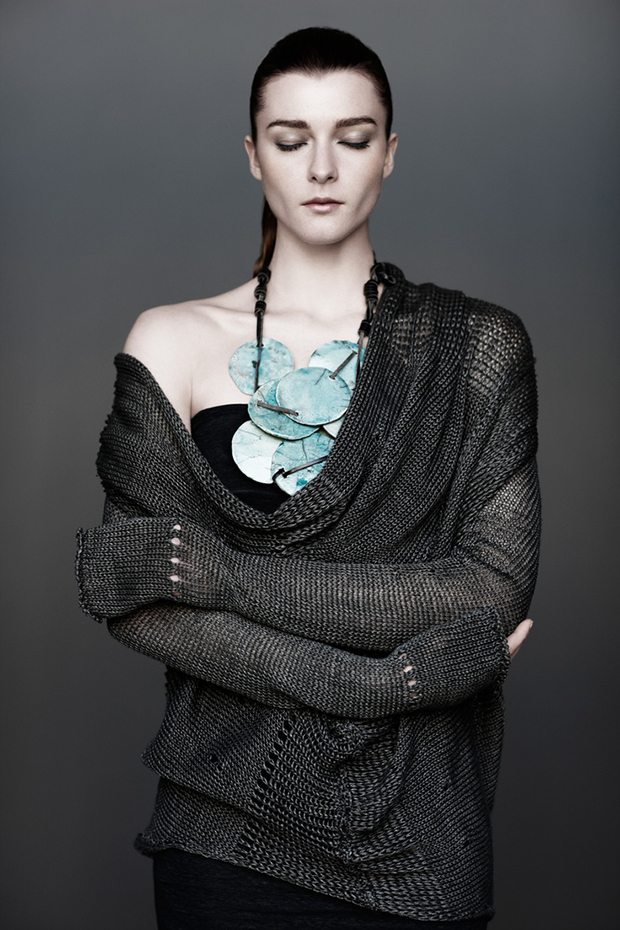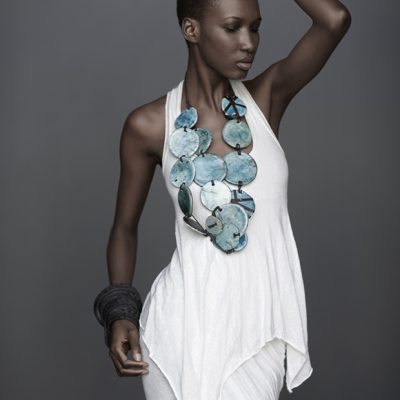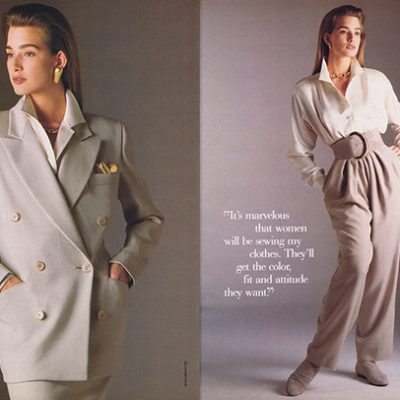
One of fashion’s true trailblazers, Donna Karan is stepping down as head designer for her namesake brand to embrace an even wider style world
by Sarah de Brun
This past June, after more than 30 years as head designer, Donna Karan announced she was stepping down from the namesake brand she created in 1984 with her late husband Stephan Weiss. The news didn’t come as a shock; speculation had been swirling about her exit for the past year, but with the departure comes a flood of sentiment toward one of the most pivotal style voices of the past century.
Think about the staples you live in right now. Chances are half of them stem from Karan’s 1985 debut collection “Seven Easy Pieces,” which, she said, reflected two vital things the Queens native felt was missing from the professional world: wear ability and femininity. With that belief, she then designed mix-and-match sportswear that easily took ladies from office to nightlife (all one needed was to nix or add the appropriate accessories).
“The bodysuit and tights, skirt or pants, a body blouse, a tailored blazer, a cashmere coat, and an evening piece—that would become my first collection,” Karan once explained about the debut. Over three decades later, each piece’s ripple effect is still felt.
Over the years, the Donna Karan Collection was at pains to respect its New York City roots. The brand was created to appeal to working women, and in 1989, DKNY was born from a need to simply find the perfect pair of jeans. The youthful allure of Karan’s new line was slightly more urban—a downtown rethink of Donna Karan Collection’s uptown class. Even the recent ’90s revival brought back early DKNY favorites: massive logo tees, graphic leggings, and a contrasting palette of black and white. Within a few years, side brands followed, including DKNY Jeans, DKNY Active, DKNY Juniors, DKNY Men, DKNY Home, and Donna Karan Cosmetics.
The 66-year-old embraced her philanthropic passions in 2007 in creating the foundation Urban Zen, which focuses on preserving cultural values and creativity, helps to improve healthcare worldwide for those in need by combining Western and Eastern practices, and collaborates with organizations whose mission is to empower and educate children. Since its founding, Urban Zen has evolved into branding, too, showcasing women’s and men’s clothing, as well as décor—the style expansion’s goal to give artists a platform to create soulful pieces that align with the designer’s beliefs. The women’s collection is not far off from past creations (think body-wrapping dresses, off-the-shoulder allure, and monochromatic palettes); the difference is that one can imagine each piece telling a further-flung story.
This is the world Karan will now inhabit. Urban Zen will become her full-time focus, and the girl who got her start as assistant designer of Anne Klein while attending Parson’s School of Design in the late ’60s will, never fear, continue to dress her fans…this time on a broader stage.




